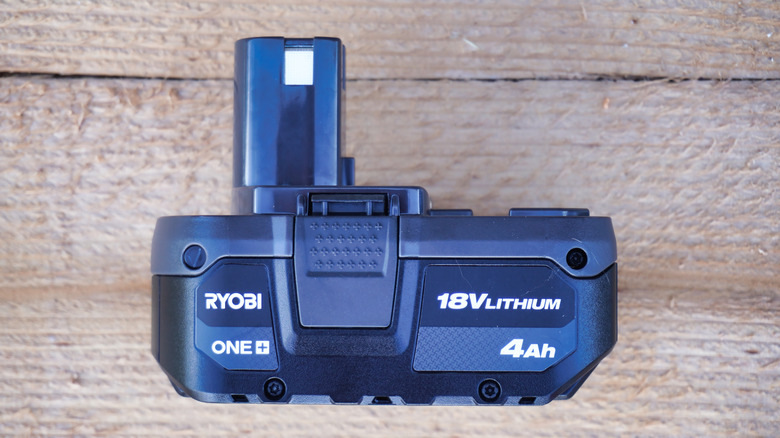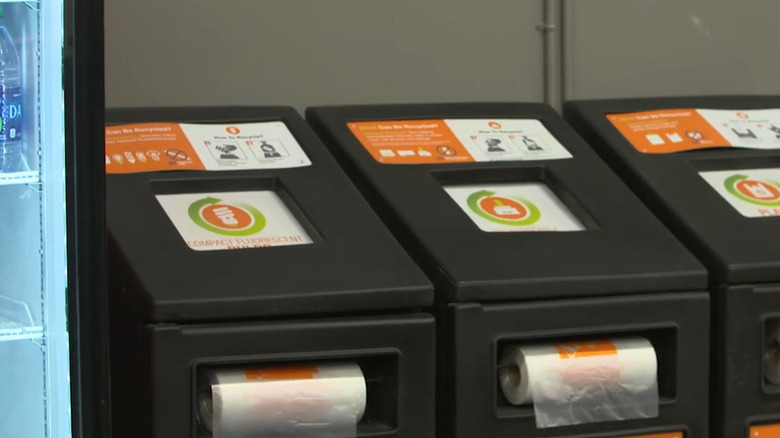Home Depot Will Replace Your Dead Ryobi Battery, But There's A Catch
Customers with dead, defective, or damaged Ryobi power tool batteries may be relieved to know that Home Depot offers options for a replacement. That being said, the replacement process comes with terms and conditions that can complicate things a bit. Between Home Depot's detailed rules for returns and Ryobi's own warranty requirements, there is a way to swap your dead battery for a new one.
Here's the catch: Under Home Depot's general return policy, most items — including Ryobi batteries — can only be returned within 90 days of purchase along with proof of purchase. Customers who used a Home Depot credit card have up to a full year to return, which gives them more flexibility than most. However, employees have the right to decline your return if they suspect the product was damaged because of misuse or some sort of fraud. Along those same lines, batteries have to be unused or defective to qualify for a return. If the life cycle of your Ryobi battery simply reached its end, a replacement might not be a possibility (at least at the store level).
Ryobi has its own rules for replacement
If your dead Ryobi battery has fallen outside of the Home Depot return window (or simply wasn't accepted at the store), you might want to look into Ryobi's own warranty program. Through its Rapid Repair service, you may be able to ship the battery to an authorized service center completely free of charge. You simply print a prepaid FedEx label, package the defective battery, and drop it off at your closest FedEx pickup location. If you qualify, Ryobi says you'll get a repaired or replaced product within 14 business days.
Still, there are strings attached: To qualify for a Rapid Repair, you need to have registered the product, and provided proof of purchase. Batteries that are out of warranty — either at Home Depot or through Ryobi — will need to be replaced outright, and you'll be on the hook for the entire cost. If you have any questions about whether or not you qualify, Ryobi has a service center for repairing broken items that you can call at 877-655-5250.
What to do with a dead battery that neither Home Depot nor Ryobi will replace
If your dead Ryobi battery can't be returned, replaced, or exchanged, avoid the lithium battery mistake everyone makes: don't just toss it in the trash. Home Depot has in-store recycling bins where you can drop any and all rechargeable batteries (and at no cost to you). Collection kiosks are typically located near store entrances or at the customer service desk, but placement will vary from location to location. This keeps hazardous materials like nickel and lead out of landfills and allows them to be reused in future products.
Of course, recycling is not the same as replacing. As such, customers who recycle a dead Ryobi battery won't walk out with a free new one. You will still need to purchase a new one or go through Home Depot or Ryobi's warranty process if you want a replacement battery.


